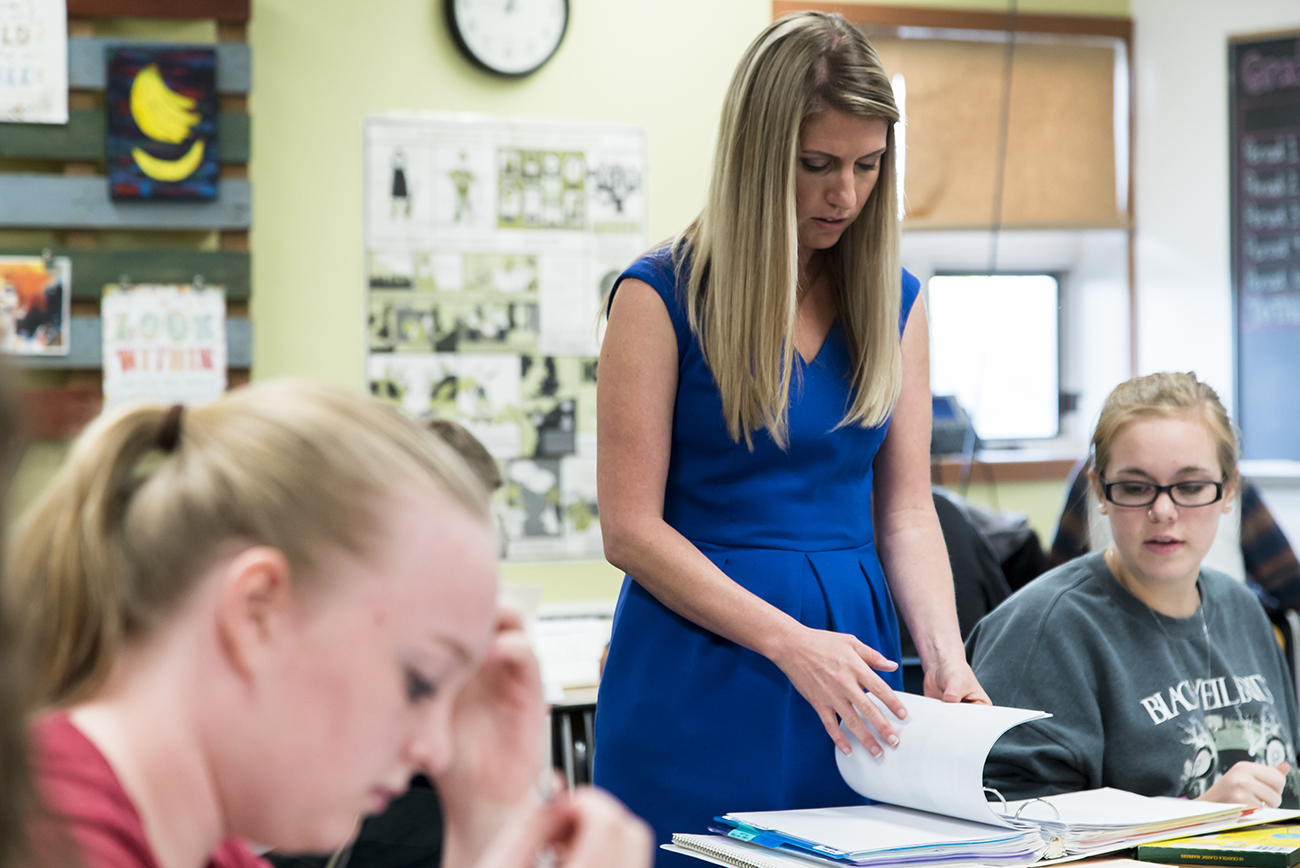September 5, 2017
Flagstaff Teacher Sees Astounding Results After Implementing Assessment Literacy
National Board Certified Teacher Angela Buzan is a proud advocate of assessment literacy training. The high school teacher shares her success story.
Close your eyes and picture this sound: 30 yellow, No. 2 pencils carefully tracing bubbles. A few nervous coughs. The swoosh of jeans as a nervous test taker shakes his leg. August’s freshmen will hear these noises over 100 times before they graduate high school.
Now, more than ever, assessment is an integral part of education. Good teachers know this. They also know that test design can greatly impact students both positively and negatively. The fact of the matter is if our curriculum is truly as valuable as we know it to be, it is imperative to determine whether or not students have learned it. And the way we determine that should be both fair and reliable.
Knowing this, the Arizona K12 Center works with Dr. Leslie Grant to bring training to Arizona’s teachers surrounding assessment literacy. Dr. Grant is a faculty member at the College of William and Mary’s School of Education. She is a former middle school teacher who knows from first-hand experience how difficult it can be to draft a test that incites an accurate representation of a student’s learning. She also recognizes that a teacher’s role in assessment is non-negotiable. She has just one agenda: to validate teachers by teaching them how to write valid assessments.
According to Buzan, Dr. Grant’s instruction is empowering.
“She guides teachers through the process of creating professional, reliable, and standards-based assessments most appropriate for a teacher’s students and goals. I couldn’t help but feel a little jealous that the class hadn’t been available during my pursuit of National Board Certification — everything she taught echoed the familiar refrain of Pre-Candidacy: ‘these kids, this setting, this time.’”
The Board-certified teacher says she received both immediate and “time-released” benefits of this class.
“Specifically, I created two final exams that were aligned to the standards, my curriculum, and most importantly the needs of my kids. After giving my last exam in May, I casually asked my sophomores what they thought of my test,” Buzan explains. “A boy in the back gave a smug half smile, dropped his pencil in the cup on my desk and said, ‘I mean, it wasn’t fun or anything, but I was prepared. You should teach my math teacher how to write a test. Hey, can I see my score?’”
If his words alone don’t charge you to navigate your browser to the Arizona K12 Center’s website to register for the Assessment Literacy offering in the fall, then I encourage you to read the five reasons I’ve conjured up below.
- Brilliant scheduling: The classes perfectly align with a teacher’s natural test-drafting time: mid-semester, just before fall break; first week of December, just before finals; and the end of January, in order to reflect and plan on the rest of the year.
- Built-in work time: Dr. Grant provides time for teachers to analyze, annotate, code, and revise their own assessments. She also makes herself available for one-on-one coaching and guidance.
- Meaningful collaboration: The varied modes of collaboration are perfect drafting: partnering with other participants, small groups with district colleagues, large groups for feedback, and even a jigsaw which allows time to have an assessment juried by peers.
- Free materials: Teachers receive a free copy of the book, as well as spreadsheets, planning sheets, and data analysis tools.
- Validation: All lessons are designed so that your own assessment is stimulus for activities.











